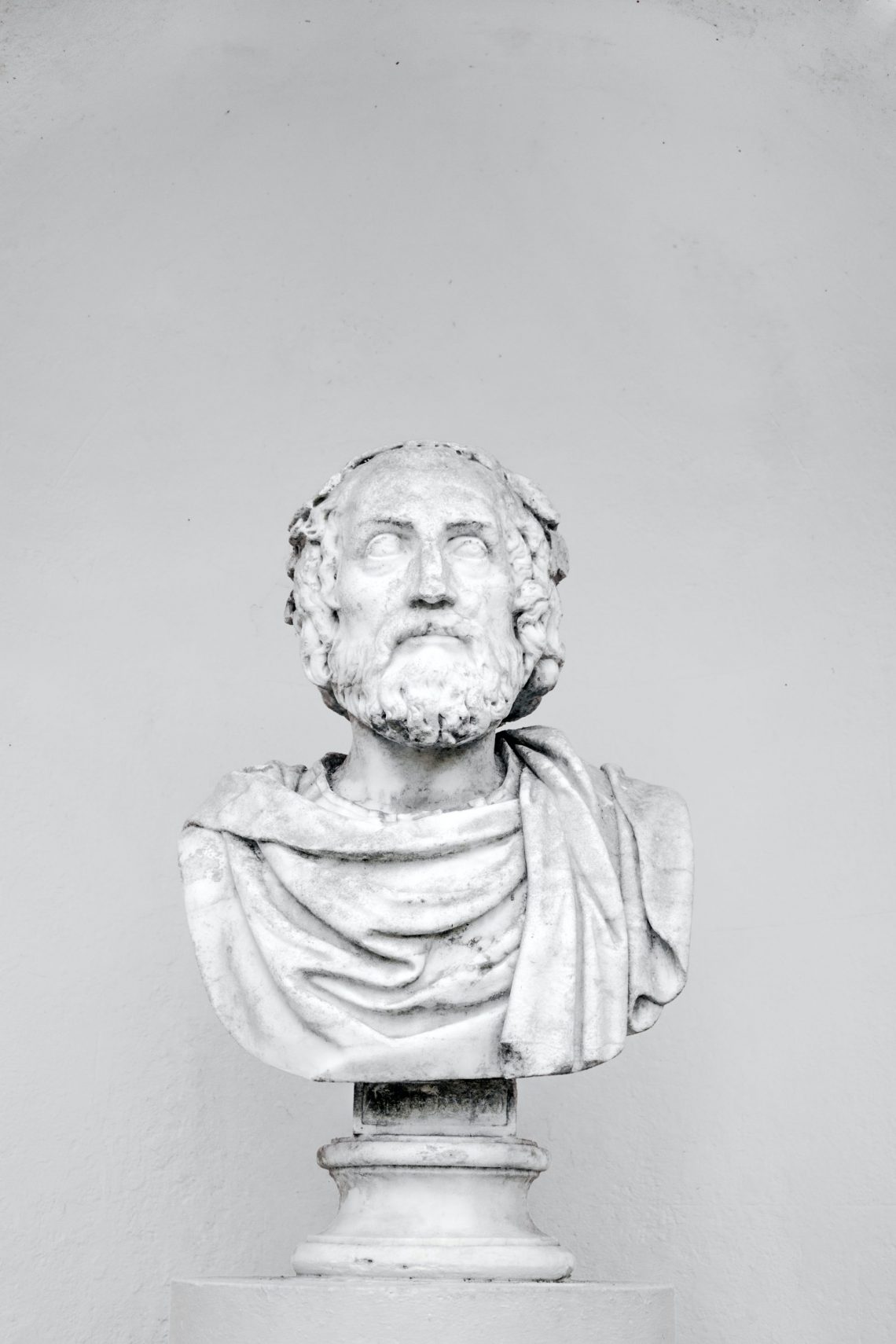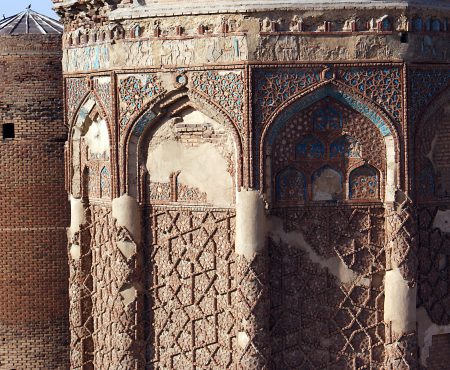How Muslims Influenced the World of Philosophy (Muslims & Islamic Philosophy)
When we hear the word ‘philosophy’, we expect the name ‘Aristotle’ to soon follow. Yet we don’t often stop to think how this great mind who lived over two-thousand three-hundred years ago, made it through so many centuries to reach us today. Little known is the crucial role played by Muslim civilisation in thinkers like Aristotle being rediscovered in Europe during the Late Middle Ages. Beginning in the eight century, works by ancient Greek thinkers such as Aristotle, Euclid and Ptolemy were being translated into Arabic in the city of Baghdad, capital of the Abbasids. Muslim scholars engaged with Greek Philosophy, debated it and produced illuminating commentaries that influenced later generations. Works by Muslim philosophers Al-Farabi, Avicenna and Averroes; known by their Latin names Alpharabius, Avicenna and Averroes respectively, had transformative and lasting effects on intellectual life in Christian Europe that would profoundly shape our modern world.
From the 8th to 13th century, centres of learning sprouted up across the Islamic world, from Cordoba to Baghdad to Samarkand, where science, art and philosophy flourished; a period that later become known as the ‘Islamic Golden Age’. The Abbasids, as well as other Muslim dynasties centred in Spain and Central Asia, saw a vibrant intellectual culture as key to both their prestige and power. The founding of the Bayt al-Hikmah or ‘House of Wisdom’ in Baghdad in the 9th century by Abbasids is a case in point. It was there that the ‘Translation Movement’ began. Teams of scholars of different religious backgrounds were gathered to carry out translations of huge numbers of works from older Greek, Persian, Indian and Chinese civilisations, which meant that the works of thinkers like Aristotle became available to new audiences and would be preserved for future generations. Impressive bodies of scholarship soon began to fill some of the largest libraries the world had ever seen.
At the head of one of those translation teams was Al-Kindi, known as Alkindus in Latin. Often considered the first Islamic philosopher, he was instrumental in introducing Greek philosophy or ‘falsafa’, into the Islamic world. He engaged with the works of Aristotle, Ptolemy, Euclid as well as Neo-Platonic thinkers to develop his own philosophical system arguing that philosophy and religion complemented rather than contradicted each. Although his work was to have little impact on European audiences in later generations, the translations he oversaw and philosophical treatises he wrote profoundly influenced Muslim thinkers that followed him. Al-Farabi arrived on the scene not long after Al-Kindi. He developed the Muslim treatment of Greek philosophy through his commentaries on Aristotle and original neo-platonic writings which both became widely read in the Muslim world and beyond.
Avicenna, considered by some to be the most important Muslim philosopher in history, developed the Muslim engagement with Greek philosophy and built on his predecessor Farabi’s work. Regarding Avicenna the Oxford Dictionary of Philosophy states “Although he read Aristotle’s Metaphysics forty times, he claimed that it was not until he also absorbed Al-Farabi’s On The Objects of Metaphysics that he understood it”. Avicenna made great use of both neo-platonic and Aristotelian philosophy in creating one of the most sophisticated metaphysical philosophies ever devised. It’s hard to overstate just how much later European thinkers benefited from Avicenna’s work in the fields of medicine and philosophy. Averroes critically received Avicenna’s philosophy, taking issue with Avicenna’s metaphysical ideas on a number of points. Averroes’s significant contribution to philosophy was via his three highly-influential commentaries on Aristotle, being famously referred to as ‘The Commentator’ by Saint Thomas Aquinas.
“When, where and how did Muslim scholarship get to Europe?” You might ask. The best place to start seeking an answer to that question is Spain, where Averroes was born. By the end of the tenth century, Islamic intellectual life was shifting more from the East to the West. In the cosmopolitan cities of Islamic Spain; Cordoba, Granada, Seville and Toledo, Christian, Jewish and Muslim scholars interacted and even collaborated intellectually. They had access to each other’s works and could operate multi-lingually without difficulty. The vibrant intellectual culture present there attracted thinkers from places such as France and England. Spain became a key point for the transmission of culture and ideas to the rest of Europe. Due to increasing contact between Christian Europe and the Islamic Spain, Arabic translations and commentaries of ancient Greek thinkers were translated into Latin, becoming the backbone for much of the academic curriculum of the newly formed European universities in Bologna, Oxford and Paris.
Notable figures such as Michael Scot, Domingo Gundisalvi and Gerard of Cremona came to Toledo from other parts of Europe to study Arabic. They did this in order to gain access to the body of learning developed in the Islamic world which would enable them to translate the works of the ancient Greeks as well the illuminating commentaries that succeeded them. This filtering of knowledge had a profound effect on the intellectual environment in Europe. The scholastic movement of learning which dominated Europe from the twelfth century right up until the eighteenth depended greatly on the transmission of Aristotle’s work and the commentaries which shed light on it. The giants of scholasticism; Thomas Aquinas and his teacher Albertus Magnus are known to have quoted figures such as Avicenna and Averroes in their philosophical works.
It was once held that philosophy in the Islamic world died out after the time of Averroes, however this view has largely been rejected by recent scholarship which has established that Islamic philosophy continued in later Muslim empires including; the Ottoman, Safavid and Mughal empires. It was the legacy of figures such as Avicenna and Suhrawardi that was embraced however, rather than the Aristotelian tradition of Averroes. An example not to be overlooked is the philosopher Mulla Sadra who was born in Safavid Persia in the sixteenth century (i.e. over four hundred years after Averroes). He boldly attempted to synthesize different complex philosophical traditions, including Avicenna’s, into what has been called his ‘transcendental theosophy’. Sadra’s philosophy emphasised intuitive knowledge, a theme he developed from Suhrawardi, and shifted the emphasis on essence in philosophy to existence.
Being aware of the philosophical tradition developed in the Islamic world can, when we look at it historically, help us appreciate the formation and development of philosophy in Christian Europe during the Middle Ages which shaped our modern world in countless ways. In the estimation of Tim Wallace-Murphy “Muslim scholars preserved and enhanced the learning of ancient Greece, laid the foundations for modern science, medicine, astronomy and navigation and inspired some of our greatest cultural achievements”. Some have argued along this line that the European renaissance may not have happened were it not for the interaction of Christian, Jewish and Muslim scholars in Spain. What can asserted confidently however is that the recovery of ancient Greek thinkers by Islamic civilisation and the body of intellectual works by the Muslim thinkers we have seen made a significant impact on Europe’s intellectual culture thus changing the course of history.





All comments (0)